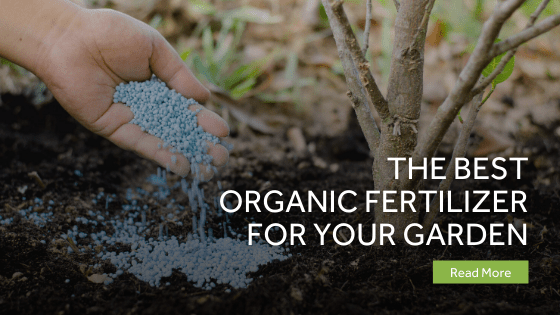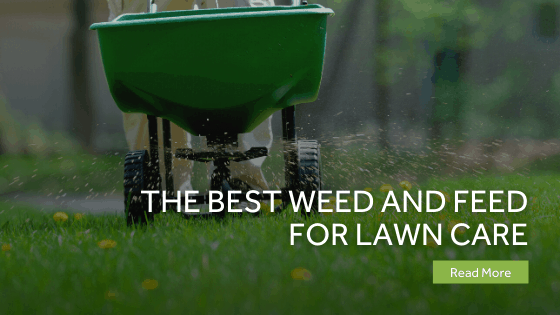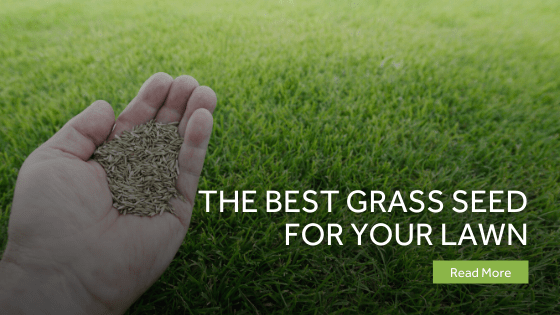Organic fertilizers are becoming more and more popular among gardeners. With people finding that even trace elements of synthetic fertilizers being so harmful, organic fertilizers make the most sense to use in the garden. Finding these organic fertilizer products can be a bit difficult. In fact, many products say they are organic, and then when you read the fine print, you may find out otherwise. Let’s look at some of the best organic garden fertilizers on the market. We also provide some of our insider secrets to make sure that you apply these products properly.
Table of Contents
Best Organic Fertilizer Overall
Jobe’s Organics 09526 Organic All Purpose Granular Fertilizer 4-4-4, 4 lb
- Package contains 4 Pounds organic all purpose plant fertilizer grains and is produced to avoid wasteful runoff, mess, hazards and smells
- Plant fertilizer is formulated with a 4-4-4 NPK to provide vegetables, plants, and flowers nutrients they need for a high yield and vibrant foliage
- Jobe's organic fertilizer contains no synthetic chemicals and are OMRI listed for organic gardening by the USDA
- Application is simple and should be done every 2-3 weeks or as needed during the growing season
You will quickly find that Jobe’s is a great name in the organic fertilizer niche. This is a fast-acting granular option that you can use on anything from trees to new vegetables. The soil will improve, and therefore you will deal with less disease and insects as well. This fertilizer has a 4-4-4 ration, which makes it a great all-around, all year choice for organic fertilizing.
Pros
- Acts quickly
- Stays in the soil for a long time
- Can use on a variety of plants
Cons
- Small bag, will need several to cover large gardens
Best Natural Fertilizer
Miracle-Gro Performance Organics Edibles Plant Nutrition Granules
- Use Miracle-Gro Performance Organics Edibles Plant Nutrition Granules to feed tomatoes, vegetables, herbs, and fruits
- OMRI listed plant food provides vital nutrients for bigger harvests (vs. unfed potted plants)
- Enjoy Miracle-Gro results with organic and natural ingredients
- Reapply every 4-6 weeks and water regularly for best results
Miracle-Gro makes plenty of products that are not derived from a natural source; however, this is their natural fertilizer. This is a great choice if you are looking for something that you can use on fruit trees or plants that you eventually plan to consume. This is natural enough that you can use it every few weeks for the best results. This particular option is granular, made up of minerals and compost; however, there are some liquid fertilizer choices from Miracle-Gro as well.
Pros
- Great for smaller gardens
- Good soil stabilizer
- Safe to use every few weeks
Cons
- Has quite a few ingredients
Best Organic Liquid Fertilizer
Neptune’s Harvest Organic Hydrolized Fish & Seaweed Fertilizer 36 0z
- Grow a beautiful vegetable garden
- Flowers and foliage will be stronger and more colorful
- Blooms will be more plentiful, fragrant and longer lasting
- Easy to mix and apply by hand, sprayer, or drip line
As you will soon find out, many of the organic fertilizers’ ingredients come from the sea. If you think back to the early societies that relied so heavily on gardening, animal waste was recycled in the soil. You will be able to do the same now with this Neptune’s Harve Organic Fish and Seaweed Fertilizer. We love this option for flowers as it truly helps them bloom quite a bit stronger and fuller.
Pros
- Easy to mix
- Very effective on flowers
- Safe to use on vegetables
Cons
- Has a strong smell when applying
Best Organic Fertilizer for Vegetables
Dr. Earth Organic 5 Tomato, Vegetable & Herb Fertilizer Poly Bag
- For more nutritious and tasty vegetables
- Optimum levels of primary plant nutrients
- Contains no GMOs, chicken manure or sewage sludge
- Feeds for several months
- Made with 100% organic and natural ingredients
- Contains pro-biotic, seven champion strains of beneficial soil microbes plus ecto and endo mycorrhizae
- More abundant crops; More nutritious and tasty vegetables
When growing food that you plan on eating, organic fertilizers are even more important. The Dr. Earth Organic is a great choice if you are looking for something that will condition your soil organisms for long term health. This particular fertilizer will feed for several months. This particular bag does not contain chicken manure or sewage sludge, which will help you feel a bit better about what you are eating!
Pros
- Affordable for vegetable fertilizer
- Specific ration to help vegetables thrive
- 100% organic ingredients from a natural source
Cons
- Not recommended for application as often as liquid options
Best Organic Nitrogen Fertilizer
Joyful Dirt Premium Concentrated All-Purpose Organic Plant Food and Fertilizer. Easy Use Shaker (2 oz)
No products found.
The Joyful Dirt Premium Organic Plant Food looks like a spice that you can keep in your kitchen cabinet. Although this is an all-natural option, we recommend keeping it where you keep your plant supplies! This is an especially effective fertilizer for indoor plants. With an 8-1-5 ratio, there is a good amount of nitrogen in the Joyful Dirt. This is a safe option to let your kids help you by getting involved in taking care of some plants in the garden. You will be impressed by the results that you get with this product.
Pros
- Won’t burn plants
- Made with natural materials
- Easy to apply
Cons
- Best for small indoor gardens
Garden Fertilizer Basics
Understanding a few things about garden fertilizers will help you make sure you are using the proper ones in your garden. A straightforward way to think of fertilizer is that it is a product that will replace or subsidize some of the ingredients that a plant needs to grow properly. A fertilizer can either be natural, or it can be a chemical fertilizer.
As we have shown you above the organic fertilizers are those that occur naturally in our world. They are not chemically derived, and therefore they are deemed to be a bit safer than chemical fertilizers. Both chemical and organic fertilizers have nutrients that a plant needs.
Whether they are organic or chemical, fertilizers are going to have some indication on the packaging as to what their makeup is. These numbers are often referred to as the NPK. The NPK stands for Nitrogen, Phosphorus, and Potassium. You will see this on any container of fertilizer you purchase.
You will have to research the plants that you are growing and the soil you are working with. Not all fertilizer is created equal. Some fertilizers can actually make the soil or the plants an unhealthy growing environment. You won’t want to treat a plant with a fertilizer high in Nitrogen if it does not need this fertilizer type.
What Is Organic Fertilizer?
Organic fertilizer is made up of ingredients that are naturally occurring. Since an organic fertilizer is not made with artificial chemicals, it is generally not as all-inclusive as a chemical fertilizer. In other words, you may need to use several organic fertilizers to get the same impact and results as a chemical fertilizer.
The great thing about organic fertilizers is that they do not bring harmful and unnatural materials into your garden. This is especially important when you are growing food. Fruits and vegetables that are grown using organic fertilizers can be much safer to eat.
Types of Organic Fertilizer
There are two main types of organic fertilizer. You will have the choice to use liquid or dry fertilizer. Aside from how these are applied, there are some differences between liquid and dry fertilizer that gardeners should understand before covering crops in fertilizers.
Liquid Organic Fertilizer
Liquid fertilizer can be sprayed in gardens directly on the soil or sprayed on the plants that need it. Liquid fertilizer is easy to apply, and it will be available to plants directly after spraying it. Liquid fertilizer is very easy to apply equally to a plant. You will visibly be able to see that you are properly giving the plant nutrition that it needs.
With rain and water that will cover the plant and soil, you may need to use liquid fertilizer more often than dry fertilizer. Make sure that before you spray your liquid fertilizer, you are mixing the contents of your container. It is widespread for these types of fertilizers to settle in their container.
If you have more established plants showing visible signs of weakness, the liquid fertilizer can quickly increase plant growth. Always read the ingredients of your liquid fertilizers to make sure they are not going to burn the plant or damage your soil.
Dry Organic Fertilizers
Dry organic fertilizers will be granular in type, and they are spread directly in the soil. The great thing about dry fertilizers is that they are going to condition the soil for gardening. This means that even after this series of plants you are growing, you will be developing a great base for a plant grown.
Organic fertilizers are readily available, and they can offer a broad spectrum of nutrition. Since some of these fertilizers will spend time breaking down in the soil, they are considered a slow-release. They will work their way down into the plant roots and provide long term health for gardens.
You will not have to put dry fertilizers down quite as often. Although they can wash away, even the trace elements left in the soil will do a great job of taking care of what plants need. With dry organic fertilizers, check the ingredients to make sure they are not going to burn plants. Nitrogen, Phosphorous, and potassium ratio should always be considered before putting this into the root systems.
Organic vs. Chemical Fertilizer
Organic fertilizer and chemical fertilizers are designed to do the same things. Essentially they carry plant nutrients that the plants are not already getting. The fertilizers will release these nutrients into the soil in hopes that the plants will then thrive and grow properly.
Most of the time, the nutrients needed for plants to go will be in the soil; however, depending on where you are growing your plants, this may not be the case. Not all garden soil is the same, and yours may lack the basic things your plants may need. If this is the case, you will notice a weak crop, discolored plants, and you will potentially lose some plants as well.
Organic and chemical fertilizers contain nitrogen, phosphorus, and potassium to help boost the soil’s health. Chemical fertilizers are often called synthetic fertilizers because of the fact that they are made with some organic matter and some inorganic matter. Many chemical fertilizers also contain a large portion of salt that helps keep bugs away in the soil.
The great thing about chemical fertilizers is that they are going to act quite fast. They do a good job of making sure plants respond quickly and have what they need. The organic fertilizers are a bit more slow-release, and they won’t impact your plants as quickly.
The major problem with the chemical fertilizer is that it will stay in the soil for quite some time. This soil is then going to be impacted by the fertilizer that remains and lingers. The build-up could make it harder for plants to grow in your garden.
It would be impossible to say that organic fertilizers are better than chemical fertilizers. For the most part, if you try to stick to 100 percent organic gardening, organic fertilizers are necessary. They will do a great job of improving soil structure over time; however, they are slow working. The organic fertilizers’ slow-release features make them a tough choice when your soil characteristics are very far off.
DIY Homemade Fertilizer
Since organic fertilizers are made from things that are naturally occurring in our environment, you should be able to make some of these yourself at home. If you are new to the world of plants and soil, you may need to learn about these fertilizers before you attempt to create your own. However, if you get good at making your own homemade fertilizer, you can tailor it to your plants and vegetables’ needs.
This recipe is for a complete organic fertilizer; chances are you will have to spend a bit of time collecting some of these ingredients.
- 4 parts seed meal
- 1/2 part dolomite lime
- 1/4 part ordinary agricultural lime
- 1/4 part gypsum
If you don’t want to find these ingredients, you can fertilize them with things like cow manure, bone meal, chicken manure, and rock phosphate. Even corn meal and fish meal can sometimes be used to create fertilizer for your yard. When you get into organic gardening, you will see that chemicals very rarely need to be used.
How to Use Organic Fertilizer
Organic fertilizer is something that you should be used once per year to make sure that your gardens are ready for the upcoming season. If you are good at organic gardening, you may find that you will need less and less fertilizer through the years.
Since organic fertilizer does such a good job of conditioning soil, it will last for years to come and make overall maintenance much easier on you. If you have never used organic fertilizer before, look at these commonly used best practices for organic garden fertilizer.
- When plants are young, use organic fertilizers with higher levels of nitrogen
- If plants are struggling to bloom, you may need more Potassium
- Towards the end of the season, look for fertilizers with phosphorus
- When doing transplants, use bone meal or rock phosphate to help with root growth
- If you need liquid fertilizer for a quick treatment, make sure you are using dry fertilizer in the soil as well
- When you understand the benefits of chicken manure, feather meal, soybean meal, corn gluten meal, and other fertilizer from animal sources and plant sources, you can add them accordingly. This can happen more than once per year and still be safe for your plants. Gardening is never an exact science, and you will need to be dynamic in handling the needs of your plants and your soil.
Organic Fertilizer FAQ
What Is the Best Organic Fertilizer?
As you saw from our list above, there are some great organic fertilizers on the market. Our favorite options tend to be the Jobe’s brand. Even though these are organic, they work very well, and they give gardeners a choice of some very specific options. If you are growing roses or fruit trees Jobe’s has an option that will work for your particular needs.
What Is an Organic Fertilizer Made Of?
Organic fertilizer can be made from plants, animals, or minerals. There are many different organic fertilizers on the market, yet none of them are made from synthetic materials. Some common types of natural or organic fertilizers include.
* Soybean meal
* Shellfish fertilizer
* Chicken manure
* Fish meal
* Rock Phosphate
* Bone meal
* Fish emulsion
Is Organic Fertilizer Better?
Organic fertilizer is better as a long term soil conditioner. It is better for the earth, better for the soil, and better for the people that may consume food grown in this soil. However, organic fertilizers are not as powerful and won’t quickly save a plant’s life the way a synthetic fertilizer may be able to. Organic fertilizers are also not always as all-inclusive. Synthetic fertilizer is usually able to cover a broader area in less time.
Recap: The Best Organic Fertilizers
Organic gardening is something to be proud of. You will obtain natural soil health by using products that are safe for gardeners and the environment at the same time. These soil amendments can help gardeners to have a large crop; however, the initial setup and process can be quite difficult. We highly recommend choosing a mix of organic fertilizers and organic ingredients to get your garden growing properly. Remember that if you notice long term issues, you can get a soil sample to see if there are problems with the soil that can be corrected.
Last Updated on August 17, 2022 by Gustaf Johansson









